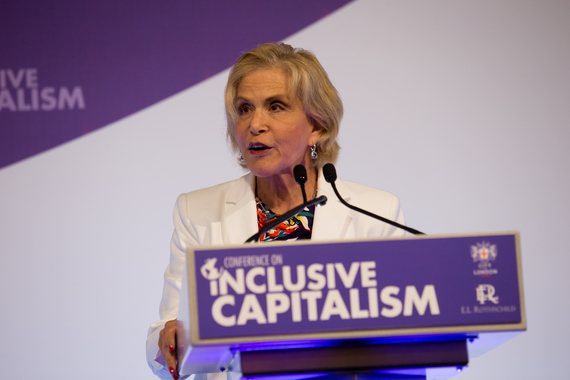
When we consider the question of how we might accelerate the global shift towards a more inclusive capitalism, we must do so in the broader context: a recognition that advancing inclusive capitalism is a vital means towards the larger goal of creating a more inclusive economy - one with more opportunities for a greater number of people.
At The Rockefeller Foundation, we believe so strongly in advancing inclusive economies that we've made this one of our two overarching goals for our work in the 21st century.
But what does an inclusive economy look like? And how can inclusive capitalism help to advance it?
In broad strokes, an inclusive economy is one in which individuals have access to expanded opportunities and face fewer barriers to economic participation, where people know the rules of the road when it comes to opening businesses or embarking on new ventures. It is an economy where there is equitable access to essential public goods and services - such as better transportation options and clean water and air - leading to greater social mobility and financial security. And it's an economy in which individuals are able to predict the outcome of their economic decisions with a reasonable degree of certainty, giving them the confidence to invest in their future.
Such an economy would yield higher levels of employment and incomes and reduce disparities across individuals and communities. And it's not just individuals that stand to benefit. If there are more people with more money and opportunity, the private sector benefits from an expanded customer base, a more diverse and talented labor pool, and greater innovation capacity.
But an inclusive economy cannot be achieved without the enabling economic system that allows for more people to access private markets as both consumers and producers. Capitalism is the best such system - as long as it is inclusive capitalism.
There are several trends emerging that will either move us closer to inclusion or further away. These include the proliferation of technology, the growth of informal labor markets, income shifts from labor to capital, the emerging shortage of jobs and demographic shifts in labor supply, as well as questions over environmental sustainability.
How we business leaders, policymakers, and leaders of global institutions respond to, harness, and shape these trends will determine whether our economies work for the many or for the few. Whether we're changing business practices or shifting public policy, changes won't happen overnight; we need visionary leaders ready to take tough decisions. We must begin today.
-- This feed and its contents are the property of The Huffington Post, and use is subject to our terms. It may be used for personal consumption, but may not be distributed on a website.
